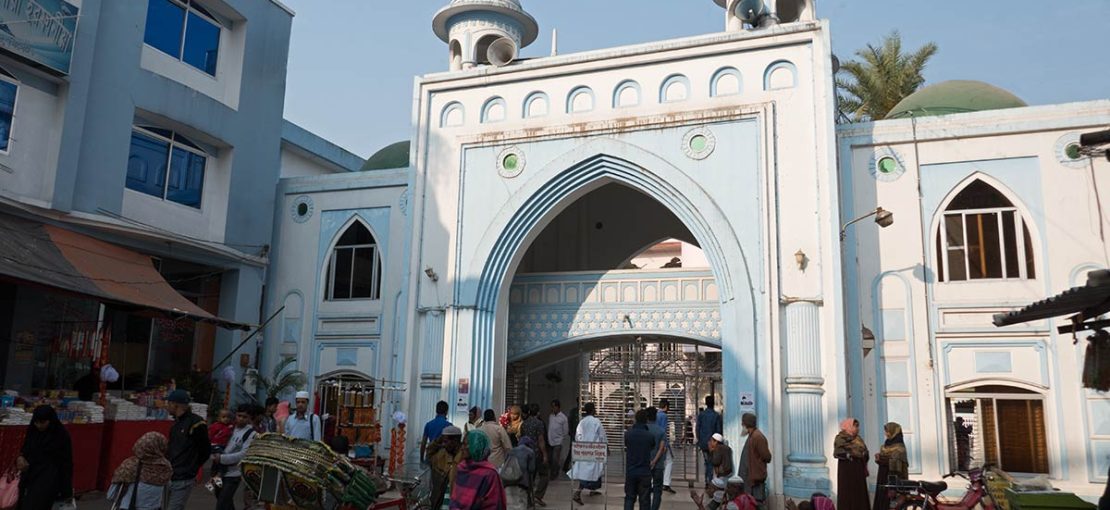Hazrat Shah Jalal (R)
Hazrat Shah Jalal (R) was a revered Sufi saint and spiritual luminary who left an indelible mark on the culture and spirituality of Bangladesh.Hazrat Shah Jalal (R) teachings and influence continue to resonate, drawing devotees and seekers of wisdom from all corners of the world. His mausoleum in Sylhet stands as a testament to his enduring legacy, a place where people come to seek solace, find inspiration.
The Life of Shah Jalal
Born in 1271 in Sylhet, Bangladesh, Shah Jalal was destined for greatness. From an early age, he exhibited remarkable wisdom and spirituality. He embarked on a journey of self-discovery, seeking knowledge from various sources. Shah Jalal’s devotion to God and his relentless pursuit of truth set him on a path that would transform countless lives.
Teachings and Philosophy
Shah Jalal’s teachings revolved around the core principles of love, compassion, and service to humanity. He emphasized the importance of inner reflection and the quest for spiritual enlightenment. His message transcended religious boundaries, touching the hearts of people from all walks of life.
Miracles and Legends
The life of Shah Jalal is intertwined with numerous miraculous stories. From calming storms to healing the sick, his supernatural feats left a profound impact on those who witnessed them. These miracles continue to be a source of inspiration for many.
Shah Jalal’s Shrine
The shrine of Shah Jalal, located in Sylhet, is a place of pilgrimage for people of diverse faiths. It is a testament to his enduring influence and the love people hold for him. The shrine’s atmosphere is charged with spirituality, making it a place of solace and reflection.
FAQs
1. What is Shah Jalal’s significance?
Shah Jalal is a revered spiritual figure known for his teachings of love, compassion, and service to humanity. His shrine in Sylhet is a place of pilgrimage and reflection for people of various faiths.
2. Are there any books on Shah Jalal’s life?
Yes, several books and manuscripts detail the life and teachings of Shah Jalal. They provide valuable insights into his spiritual journey and the impact he had on society.
3. Can anyone visit Shah Jalal’s shrine?
Yes, Shah Jalal’s shrine in Sylhet is open to visitors of all faiths. It welcomes those seeking spiritual solace and reflection.

Tomb of Shah Jalal (R), Sylhet
Though based on folk tales, historic evidences support the truth of the war event. King Gaur Govinda, Sultan Shamsuddin Firuz Shah, Skiandar Khan Ghazi, Nasiruddin, Shah Jalal are all historical persons; there might be some imaginary accounts in illustrating the story, but the main event, ie, the conquest of Sylhet, is a historical fact. Sultan Shamsuddin Firuz Shah ruled Bengal during the period from 1301 to 1322 AD and expanded the territory under his rule in all directions. Epigraphic and literary sources also attest the fact of the conquest of Sylhet during Shamsuddin Firuz Shah’s rule and of the involvement of Shah Jalal (R) in the process.
Conclusion
Shah Jalal’s life is a testament to the power of spirituality and the enduring impact one individual can have on the world. His teachings of love, compassion, and service continue to inspire generations. The shrine in Sylhet stands as a symbol of his legacy, welcoming seekers of all backgrounds.
In a world filled with turmoil, the story of Shah Jalal reminds us of the importance of inner peace and the potential for positive change. Let us draw inspiration from his life and strive to make the world a better place through love and compassion.

